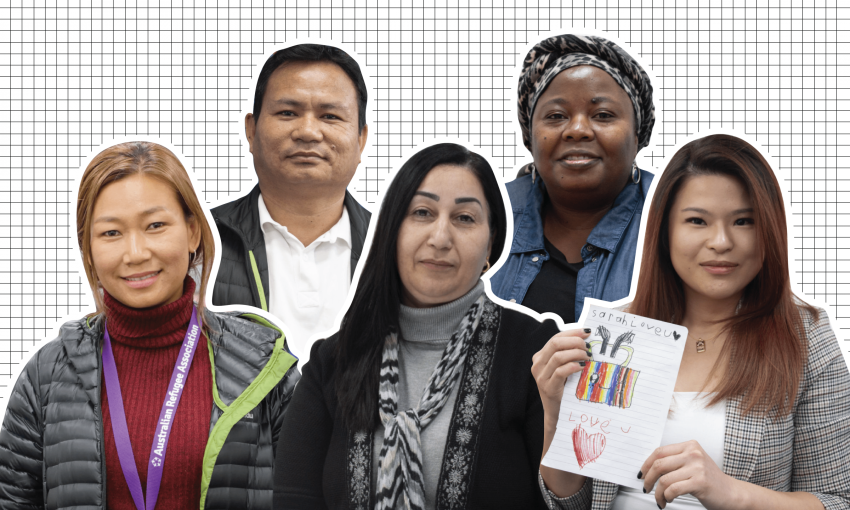Over its 45 years in operation, the Australian Refugee Association has helped 20,000 new arrivals settle into new homes and overcome language barriers, cultural differences and confusing Centrelink forms. We speak to the organisation's caseworkers about why they love their work.
Meet the caseworkers of the Australian Refugee Association
At lunchtime, the Australian Refugee Association comes to life.
In the cafeteria, located on the second floor of the Salisbury-based facility, caseworkers scoff plates of hand-made chicken dumplings and tear off pieces of bread to dip into hummus.
An array of culinary flavours are celebrated at the Australian Refugee Association (ARA). At the kitchen island, someone is even slicing into a piece of perfectly cooked schnitzel.
Located a fair distance from the Adelaide CBD, this partially-government-funded facility is a lifeline for many new faces to South Australia.
The organisation is staffed predominantly by people from culturally and linguistically diverse backgrounds – some identifying as former refugees themselves – and aims to help arrivals transition to living here, offering mentoring opportunities, employment pathways and consultative visa support, among other services.
As part of Refugee Week, and CityMag’s desire to show appreciation for those on the front lines of social services, we spent a day at ARA’s Adelaide headquarters to find out what keeps the caseworkers motivated, in spite of the challenges.
We also wanted to know what the biggest issues facing our city’s newest friends are, and whether the federal government could do more.
LAL RAI
—Lal Rai
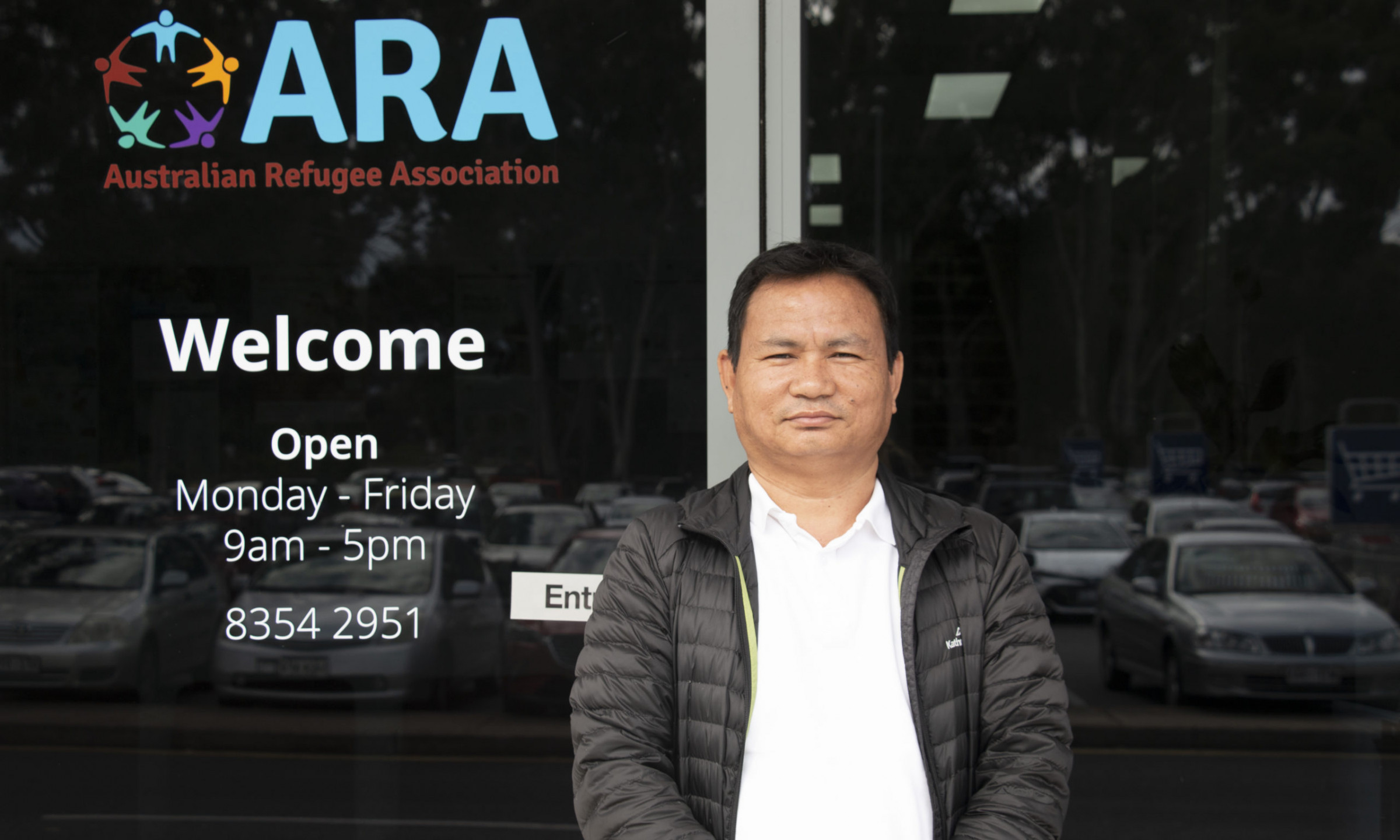
“Adelaide is my new home after spending 20 years stateless,” says Bhutanese ARA disability case worker Lal Rai.
“I’m proud to call Adelaide and Australia my new home.”
Lal fled his home country of Bhutan – a tiny, remote country sitting on the eastern edge of the Himalayas – when he was 10 years old.
Due to increasing “political issues” and concerns he’d be caught up in the country’s ethnic cleansing regime, he escaped “to survive”.
After fleeing Bhutan, Lal spent the next two decades in a Nepalese refugee camp, eventually migrating to Adelaide in 2012 after being granted refugee status by the Australian government.
Since October last year, Lal – who also heads up a local Bhutanese community group – has worked as an ARA caseworker and handles around 80 clients at once.
His duties include aiding the local Bhutanese community, mentoring 12-to-24-year-olds to become social leaders, and aiding anyone from culturally or linguistically diverse backgrounds access the federal government’s National Disability Insurance Scheme (NDIS).
“Because of their language barrier and different issues, some of them are not able to access the NDIS support, and sometimes it’s quite difficult to explain the system,” Lal says.
“I’m also the current chairperson of the Bhutanese [Australian] Association [of South Australia] and we supported them with [treating] multiple health issues. Some have post-trauma and mental health problems, like depression.”
Lal says many Bhutanese in South Australia are dealing with mental health issues that arise from living in refugee camps for long periods of time.
A strong desire to help others keeps Lal showing up to work every day, as well as the ability to fuse his personal experience into his career.
“I enjoy supporting the people having different types of health issues, or who need help settling in Australia after their resettlement. Lots of challenges,” he says.
“I really want to support them so they can settle well in a new country and call this place a new home.”
ALIMA LUMENA
—Alima Lumena
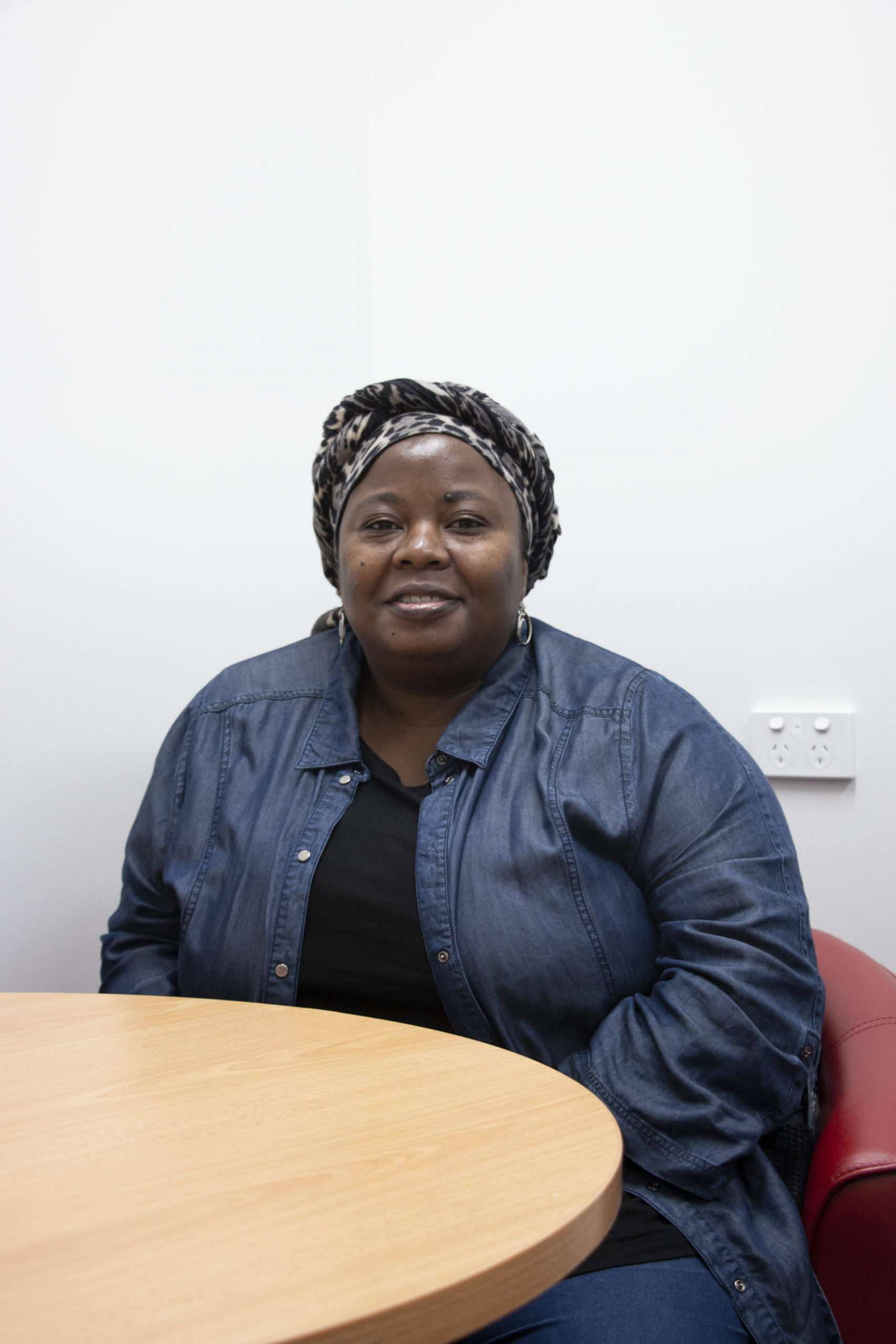
“This system is hard to navigate because we come from a country where the system is completely different from the one here,” Congolese ARA caseworker Alima Lumena says.
“The culture is different. Everything is different.
“It makes life so complicated, especially for people who don’t really have any level of education at all.”
Alima’s role at ARA mostly centres on working with African refugees or Swahili-speakers as they deal with “low and medium” resettlement needs, such as filling out forms or paying bills.
The mother-of-three knows migrating to Australia can be a complicated process, because she fled the Congo (a country located in central-west Africa) in 2001 due to war.
In the past two years working at ARA, Alima has noticed how lines of communication between the federal government and new arrivals can be blurred, particularly when letters are involved.
“[Refugees] don’t understand what the letter is about and will struggle to understand what to do next, and will have to try to find someone in the community to assist them – but everyone is so busy,” Alima says.
“So some of them, they’ll just stay home and put it in the bin, and then later they will find out they were supposed to go somewhere or do something about the letter. So, I think it’s not easy.”
Even if the letter is sent in the recipient’s native language, they still may not understand, Alima says, because they may be illiterate, as some new arrivals, especially women, are.
Alima says Australia’s refugee community would benefit from more workshops explaining how Australia’s bureaucracy is structured.
“They give us [an] orientation about what is the favourite animal in Australia and things like that, [but] I find that it’s more important for this family to know how the system functions here,” she says.
HIND SULEIMAN
—Hind Suleiman
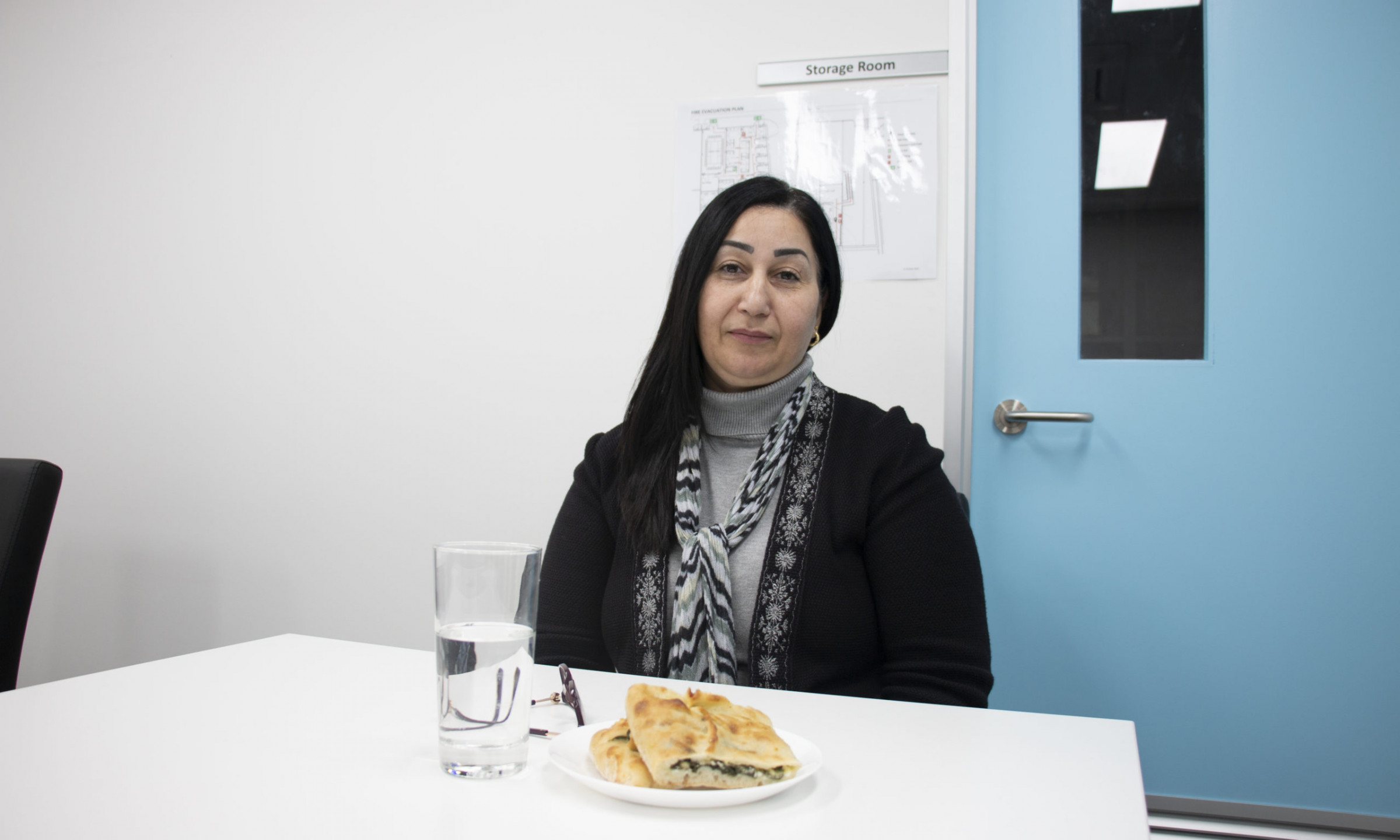 “My husband was a major in the army and we had very tough time in Iraq, so we decided to leave,” says Iraqi ARA senior case manager Hind Suleiman.
“My husband was a major in the army and we had very tough time in Iraq, so we decided to leave,” says Iraqi ARA senior case manager Hind Suleiman.
“We had to either save his life or stay.”
Hind tells us she fled the Middle East 17 years ago for a better life in Australia, due, once again, to internal conflict.
When she arrived in Australia, she attempted to get qualifications as a radiographer, then a nurse, before becoming a caseworker due to her “enduring love” of helping people.
Hind has been with ARA for six years, and her role as a case manager mostly involves helping Syrian refugees find their feet in Adelaide, which includes running women’s groups, business venture programs, and consultations to help people understand Australia’s cultural idiosyncrasies.
Aside from an obvious language barrier, she says the country’s social mores present a massive hurdle.
“Back there, the woman doesn’t think much about the future, the kids – it’s only male rules,” Hind says.
“When you come here, the men hear this is a country supporting women, then issues start coming up, [especially] when the woman is going to study, drive.
“It’s not about who’s better or stronger, it’s about the equality.”
Although many refugees are grateful to be accepted by Australia, they still miss home – especially if they were forced to flee. This can make for a lengthy and challenging process of adjustment.
“They’ve been in the other country where they [were] facing the very tough and hard time there, sometimes for three or four years,” she says.
“But if they think about the future, the kids, they change.”
Aside from being a caseworker, Hind also runs local community group Iraqi Families United of SA.
Two decades ago, when she first arrived in Adelaide, there weren’t many settlement resources for Arabic speakers. She wants to change that.
SARAH CHEW
—Sarah Chew
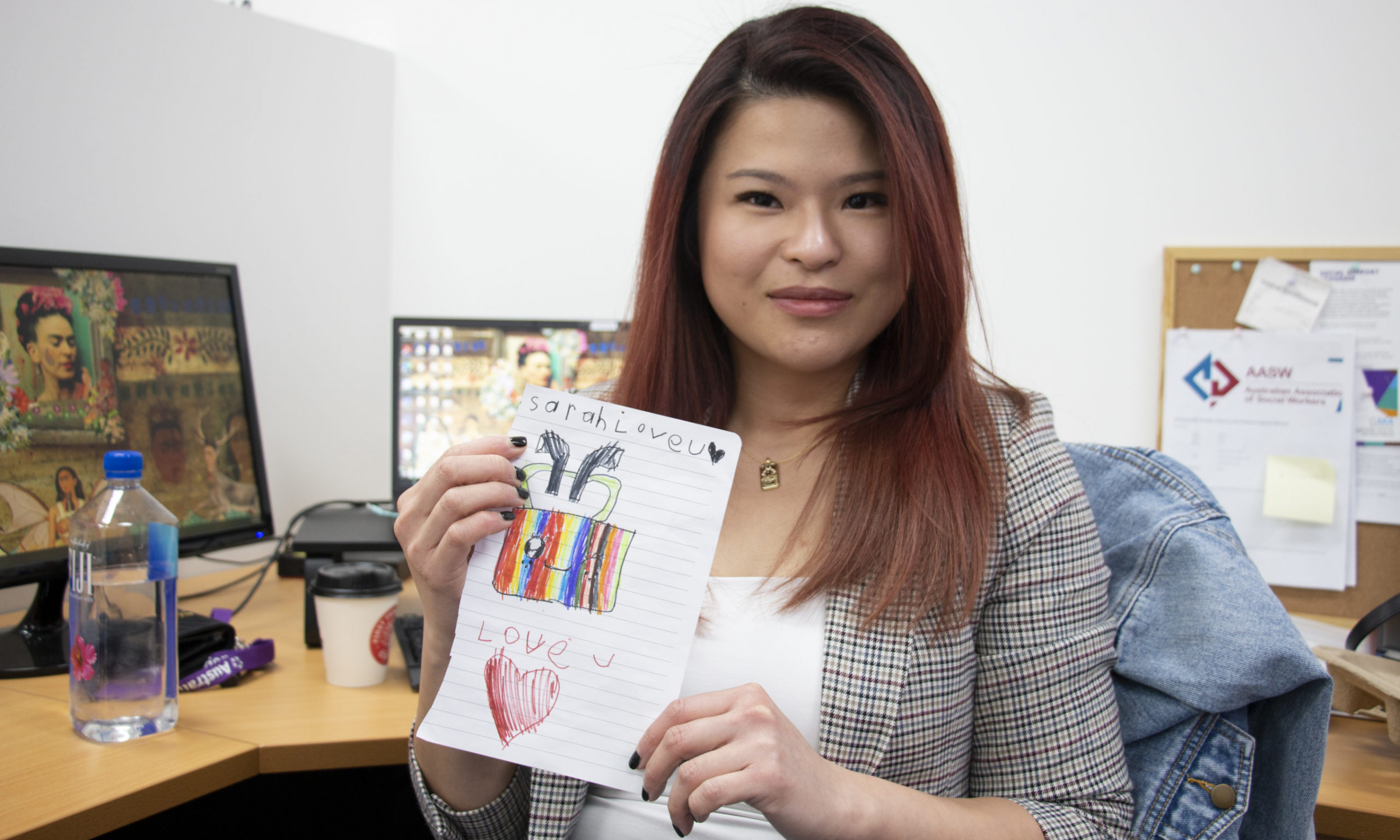
“Sometimes you do feel a little bit disheartened,” says Chinese-Malaysian special intensive support worker and domestic violence case worker, Sarah Chew.
“Because you want the best for your clients, and, at certain times, because of policies and the system and the way that it is structured, it’s not always in favour of their circumstances.”
“It can’t be a little bit tricky.”
Sarah is the only caseworker CityMag spoke to who doesn’t come from a refugee background. She arrived here as a student a decade ago.
Sarah’s job at ARA is a little different to the other caseworkers.
She wears two hats as the special intensive support (SIS) worker, which, as the name entails, offers intensive help for recently arrived refugees; and her other role is supporting domestic and family violence clients.
To be eligible for SIS, an applicant must have “higher complexities and be more vulnerable”,” Sarah explains.
For the domestic and family violence help, it’s not limited, “so no matter your visa status – I have the capacity to help you,” she says.
“I’ve got so many referrals from women who just don’t know where to go. There are just no other support services available to cater to their needs, to give them that help that they need.”
Sarah estimates she’s wrangling around 90 clients at once, and she gets referrals from sometimes bizarre sources. On the day we visited, a landlord made contact who was worried about one of their tenants.
She’s floored every day by her client’s resilience and “unparalleled courage”, and brings up one person in particular who’s left her in awe.
“I’ve had a lady [who] has just left her relationship, so it was domestic violence relationship,” Sarah says.
“She was sleeping at a shelter with her children, one of whom recently went to the hospital for an injury, and she shut down her business due to all this stuff.
“I see her often, and the first thing she [says when she] sees me is just, ‘Good morning, Sarah. It’s so nice to see you today. Come on in, have a tea and a coffee.’
“We’re trying to get her Centrelink payments… but we can offer food vouchers, we can offer all these things, and she’s just so grateful for that.
“It’s just an incredible sense of achievement that, despite all this, she just gets on. She just does it.”
BLESSING IMNAE
—Blessing Imnae.
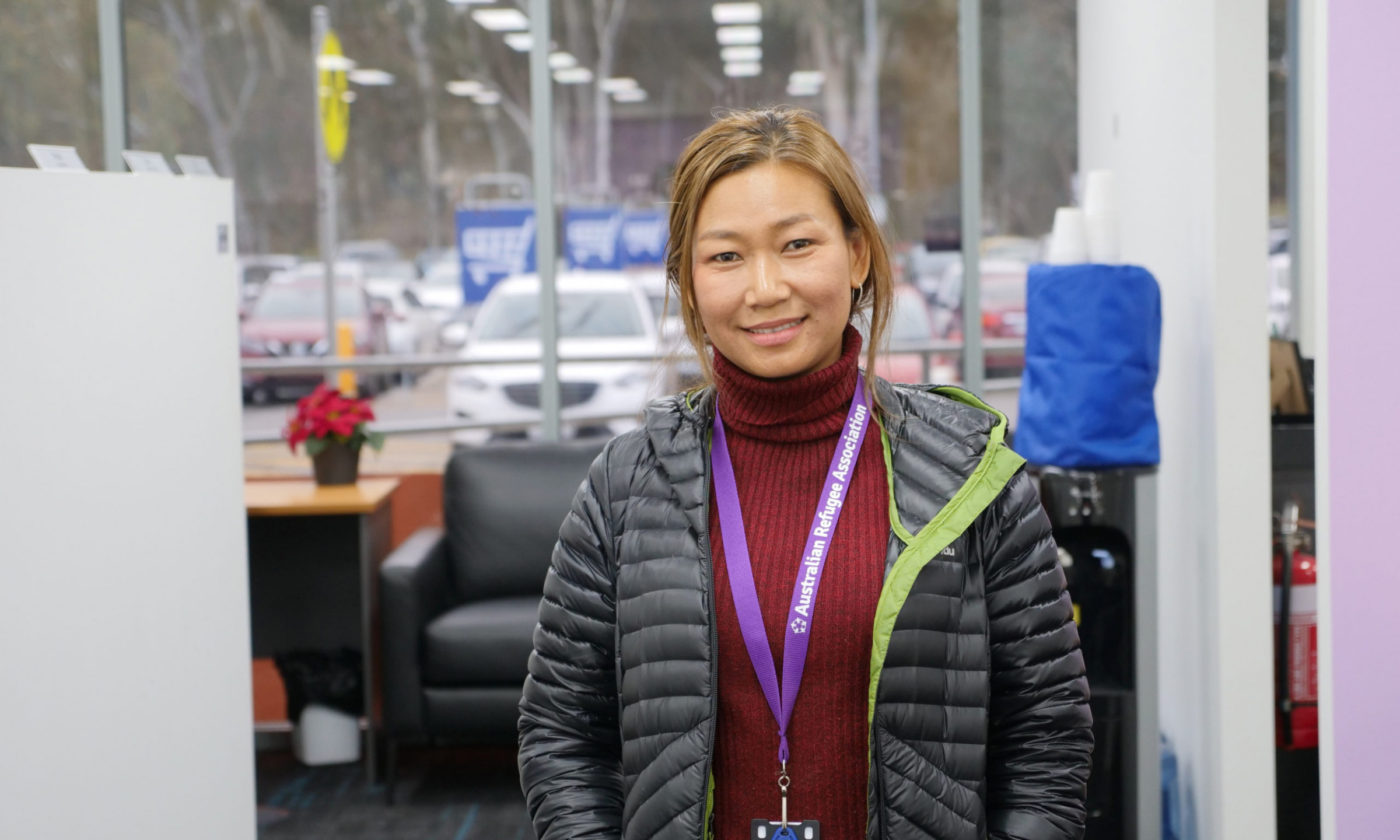
“If you know their background when you engage with these people, I think that helps. It makes a huge difference,” says Burmese Chin ARA family relationship counsellor Blessing Imnae.
Blessing’s job at ARA sees her offer emotional support and one-on-one counselling.
Knowing five languages gives Blessing a major leg-up when dealing with culturally and linguistically diverse clients, but convincing them self-care is a necessary part of healing is consistently difficult.
“We don’t really know how to look after ourselves, because [for] all our mums that come in, their worlds are literally their husband and their kids,” she says.
“There is no space for them.”
Another huge task is dealing with the trauma of the refugee experience.
“It depends on which part of the world they come from; for example, people from the Middle East have to deal with a lot of war-related trauma, and also domestic violence,” she says.
“The job itself is not hard, but when we are dealing with the people from these backgrounds, they don’t understand what mental illness and mental health issues are, and then very often they will be in denial or they will be hiding.”
Blessing is a refugee herself, who opts to make her “long story short” by saying she was forced to leave her country because “there’s a lot of conflict going on”.
Burma – a Southeast Asian nation now known as Myanmar – has been riddled with political issues, including more recently a military coup and alleged ethnic cleansing.
Blessing originally left her home country for Malaysia, where she lived stateless and “constantly worried” for her safety, before joining her family in Australia in 2009.
She has never looked back, and thinks it’s a privilege to be able to help others adjust to their new lives, just as she did.
“I may not be making a huge difference; however, I enjoy every opportunity that I have in the journey, or in making this difference in this community,” she says.
We ask if she ever deals with homesickness, but she says it doesn’t bother her that much. However, “there is a little hole that is unfulfilled.”
“Doesn’t matter how long you are here, doesn’t matter how special you feel here. Nothing is like home.”
If this story raised issues for you, call LifeLine on 13 11 14. Beyond Blue and headspace are other national organisations offering comprehensive mental health support.



